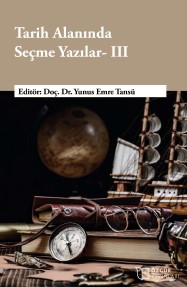Bağdâd’da Bir Moğol Yönetici: Emir Aruk1
A Mongol Ruler in Baghdad: Amir Aruq
Author(s): Mustafa Aylar
Subject(s): Economic history, Local History / Microhistory, Political history, Government/Political systems, 13th to 14th Centuries
Published by: Özgür Yayın Dağıtım Ltd. Şti.
Keywords: Amir Aruq; Baghdad;
Summary/Abstract: Founded during the Abbasid period and one of the most important cities of the Islamic world, Baghdad was captured by Hülegü, the founder of the Ilkhanid Empire, in 1258 and was subjected to great looting, destruction and massacre. Although the appointment of an experienced person such as Ata Malik al-Juwaynī in the administration of the city had positive results for Baghdād, the troubles in the city did not completely end. During the reign of Arghun, who came to the throne thanks to Emir Buqa after the throne turmoil in the Ilkhanid Empire, the Mongol emir Aruq was appointed as the ruler of Baghdad. Relying on the power of his older brother Emir Buqa, Emir Aruq increased his personal power and wealth in Baghdad. He also engaged in a number of behaviors that disturbed other Mongol emirs. This added to the already existing problems in Bagdad. Every day, more and more people became disturbed by what Amir Aruq and his brother Buqa were doing. As a matter of fact, the Jewish Sa‘d al-dawla, the deputy of Tatarqiya, the shihna of Bagdad, reported this situation to the Ilkhanid ruler Arghun. Finally, the Ilkhanid ruler Arghun put an end to the rule of the Buqa and Aruq brothers and eliminated both of them. Amir Aruq was the ruler of Baghdad for about five years, oppressing the people with his aides in the city and collecting large amounts of money, goods and property.
Book: Tarih Alanında Seçme Yazılar - III
- Page Range: 97-109
- Page Count: 13
- Publication Year: 2023
- Language: Turkish
- Content File-PDF

